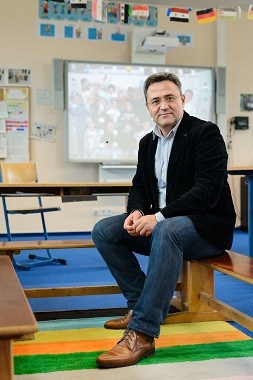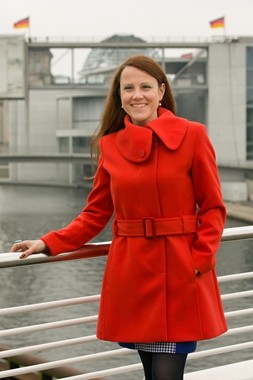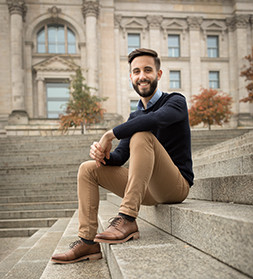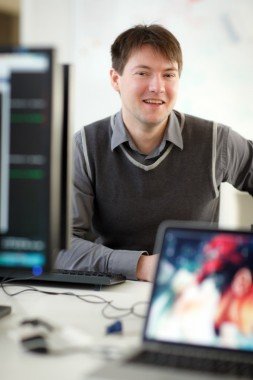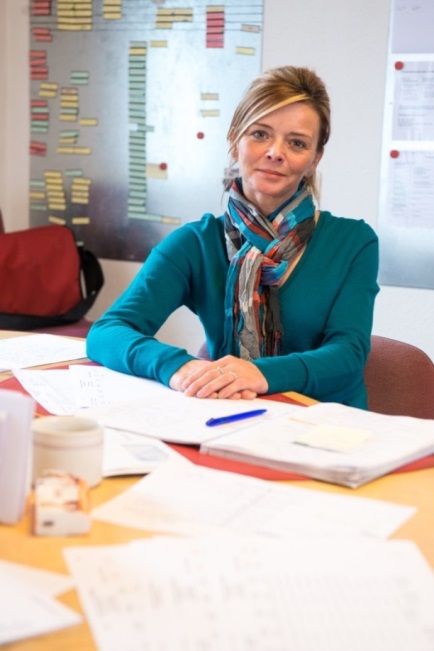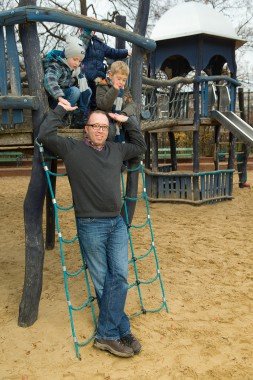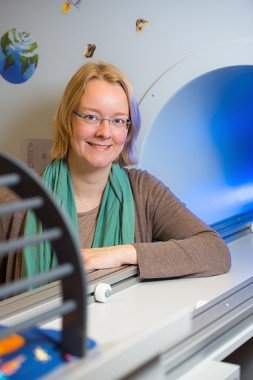Life as a Refugee: Personal Initiative and Support as a Foundation for a New Beginning
Berlin, April 2016. In 2015, around 890,000 refugees arrived in Germany – about 70% are of working age and roughly two-thirds are under the age of 30. Around half of all asylum applications were approved in 2015. The integration of such a large group of immigrants has been the subject of heated public debates for many months. What will it take to be successful? The government, its institutions and the private sector all have key roles to play in integrating refugees into the labour market. The government relies on a concept of early integration of certain groups which can be seen in e.g. the decision to open up integration courses to asylum-seekers with good prospects of being granted residence and the gradual reduction in barriers to the labour market since 2014 – most recently with the Asylverfahrensbeschleunigungsgesetz (Act on the Acceleration of Asylum Procedures) from October 2015. Other reforms, such as the guarantee of residence during training and two years after training ends (known as the “3-plus-2” rule), are expected to be passed with the planned integration law in late May.
However, additional support is also needed, particularly from civil society, to pave the way for new arrivals to have equal opportunities to participate in Germany and make it possible for asylum-seekers with good prospects of being granted residence to integrate into society over the long run. Since the beginning of the refugee crisis, the people living in Germany have shown an unprecedented willingness to help refugees arriving in Germany. Non-profit organisations have also launched numerous services for refugees. But, ultimately, it also always depends on the personal initiative of each individual refugee to quickly gain a foothold here and make the best out of their life in Germany.
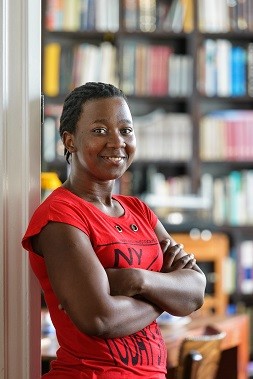
We would like to tell you the story of Sarah Namutebi who fled from Uganda to Germany in autumn 2015, and has persevered to build a new life in Germany with the active support of civil society and the help of a family.
Sarah Namutebi is 23 years old. She grew up in Uganda and had started a degree in journalism at Nkumba University in Kampala. In autumn 2015, she had to flee after her parents and brother were killed by militias in a massacre. After spending many months making her way across the Mediterranean, Greece and the Balkan countries, Sarah arrived in Munich in November 2015. She applied for asylum there and initially lived in a refugee centre. By chance she met Noga Bruckstein, a young violinist from Berlin, on the train. The two became friends. “I was so lucky to meet her and her family. They have taken me into their family.”
Since January 2016, Sarah Namutebi has been living in a colourfully mixed German-Turkish-Jewish family with five adult children in Berlin whose members come from three countries and for whom the “migration experience” is the norm. A scholarship made it possible for her to move from Munich to Berlin even though her asylum procedure had yet not been concluded: through the Bruckstein family and “DeutschPlus – Initiative für eine plurale Republik” (Initiative for Pluralistic Republic) – Sarah Namutebi heard about a scholarship “Geh Deinen Weg” (Follow Your Path) of the Deutschlandstiftung Integration (Germany Foundation for Integration) which has also recently begun targeting young people with refugee backgrounds. The Deutschlandstiftung announced the first 13 refugee scholarships in 2016 and wants to show what is possible when young people are given the best possible support right after their arrival in Germany without losing any time and given optimum conditions for language acquisition. Following a written application and an interview, Sarah Namutebi became the first “Follow Your Path” scholarship recipient in Germany in December 2015. The two-year scholarship supports Sarah with funding for language classes, connects her with other academic scholarship recipients, makes it possible for her to participate in workshops and seminars and provides her with two mentors who help her build a professional network in Germany over the long run. For Sarah, the contacts to other scholarship recipients and mentors who help orient her in her new home are especially important: “This volunteer support makes it easy for me to find my way in Germany. And in a few years, I can give something back when I become a mentor for new scholarship recipients.”
Sarah Namutebi has wanted to become proficient in German as quickly as possible since her arrival in Germany so that she can resume her professional path which was interrupted when she fled Uganda and quickly find her way in Germany. She does not yet have access to a state integration course because her asylum procedure is still pending. Once again, luck and perserverance on the part of Sarah and her family came together and she managed to obtain a spot at a large Berlin language school offering high-level German courses for job-seekers from around the world to give them the fastest possible access to the German labour market or German universities. The school management even agreed to grant Sarah Namutebi a partial scholarship after meeting with her: “We were overwhelmed by the spontaneous generosity of the school,” says Sarah. Thanks to the partial scholarship from the school and the scholarship from Deutschlandstiftung Integration, Sarah Namutebi can now attend a 30-hour a week intensive German course. Her success proves the value of this intensive support: Sarah can now communicate well in German.
However, Sarah Namutebi has moved away from her original career choice – journalist – because she thinks it would be too difficult in German for her in the near future. But she has reoriented itself. She likes to work with people and has a good feel for the needs of others. Good prerequisites for training as a nurse for the elderly. In April 2016, Sarah introduced herself in an interview to the director of a well-known vocational training centre in Berlin and made an impression: she left the interview – which she was already able to conduct partially in German – with a verbal commitment for a spot in a three-year training course as a nurse starting in October 2016. She now only has to have her high school diploma officially recognised. Sarah and her new family are very happy about this commitment. “I am glad that my life is normal again and pray that it stays that way.” Sarah has found a family in Germany, she has been able to develop close friendships in a short time. “After the uprooting that I experienced as a refugee, I am finally back on my own two feet. I am well-grounded and feel that I have freedoms again. Freedom to me means: not having to be afraid. I also want to give something back to Germany and to my friends and family.”

